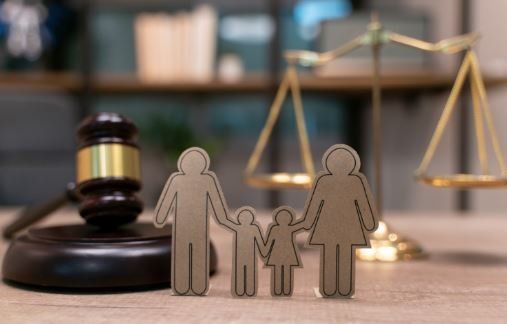Employment Discrimination: When To Find A Solicitor
If you’re facing discrimination in the workplace, it’s crucial you seek legal help as soon as possible. A solicitor can help fight your case and ensure you get the justice you deserve. Read on to understand more about employment discrimination, from its different types to the best ways to tackle it.
What is employment discrimination?
Employment discrimination is the act of treating an individual or group of individuals unfavourably in the workplace based on their race, gender, ethnicity, religion, age, sexual orientation, or disability. This type of discrimination can take many forms, including unequal pay, harassment, and wrongful termination. Discrimination in the workplace is not only illegal, but it is also detrimental to the productivity and morale of the employees.
Types of employment discrimination
There are many different types of employment discrimination. The most common cases include:
Race discrimination
Race discrimination is when an employer treats an employee or job applicant unfavourably because of their race or ethnicity. This type of discrimination can take many forms, including unequal pay, harassment, or wrongful termination. Examples of race discrimination include an employer refusing to hire someone because of their race, an employer paying different wages to employees of different races for the same job, and an employer creating a hostile work environment based on race.
Gender discrimination
Gender discrimination is when an employer treats an employee or job applicant unfavourably because of their gender. Again, this type of discrimination can take many forms, including unequal pay, harassment, or wrongful termination. An example of gender discrimination in the workplace could be an employer paying a male employee more than a female employee for the same job, with the same qualifications and experience. Another example could be an employer making negative comments about a female employee's appearance or personal life, creating a hostile work environment based on gender.
Age discrimination
Age discrimination is when an employer treats an employee or job applicant unfavourably because of their age. An example of age discrimination in the workplace or employment could be an employer refusing to hire an older worker because of their age. This could be due to stereotypes or assumptions that older workers are less productive or less tech-savvy than younger workers. Similarly, an employer may choose to lay off older workers before younger workers during a downsizing or restructuring process, purely because of their age. Another example could be an employer denying an older worker the opportunity to attend training or professional development opportunities, which could limit their career progression and opportunities for advancement.
Disability discrimination
Disability discrimination is when an employer treats an employee or job applicant unfavourably because of their disability. An example of disability discrimination in the workplace or employment could be an employer refusing to make reasonable adjustments for an employee with a disability. This could include failing to provide appropriate equipment, facilities, or support to enable the employee to perform their job duties. Another example could be an employer refusing to hire an applicant with a disability, assuming that they would not be able to perform the job duties, without considering their skills or experience. Similarly, an employer may choose to lay off or terminate an employee with a disability, purely because of their disability, without considering alternative options or accommodations.
Sexual orientation Discrimination
Sexual orientation discrimination is when an employer treats an employee or job applicant unfavourably because of their sexual orientation. An example of sexual orientation discrimination in the workplace or employment could be an employer refusing to hire an applicant because of their sexual orientation, or making employment decisions based on an employee's sexual orientation. For instance, an employer may refuse to promote an employee because they are gay or lesbian, or may make derogatory comments about an employee's sexuality, creating a hostile work environment.
Direct vs indirect workplace discrimination
There are two types of employment discrimination: direct discrimination and indirect discrimination:
Direct discrimination
Direct discrimination occurs when an individual is treated less favourably than another individual in the same situation because of a protected characteristic, such as their race, gender, age, or disability. Direct discrimination is intentional and can be overt or covert.
Examples of direct discrimination include:
● Refusing to hire someone because of their race, gender, or age
● Paying someone less than others in the same position because of their gender or race
● Firing someone because of their disability
Direct discrimination is illegal and can result in legal action being taken against the employer.
Indirect discrimination
Indirect discrimination occurs when a policy or practice that applies to everyone in the workplace has a disproportionate impact on individuals with a protected characteristic. Indirect discrimination is often unintentional, but it can still have a negative impact on individuals.
Examples of indirect discrimination include:
● Requiring all employees to work on Saturdays, which may disproportionately impact employees who observe the Sabbath
● Requiring all employees to have a certain level of education, which may disproportionately impact employees from certain socio-economic backgrounds
● Requiring all employees to pass a physical fitness test, which may disproportionately impact employees with disabilities
Indirect discrimination is also illegal and can result in legal action being taken against the employer.
The difference between direct and indirect discrimination
The primary difference between direct and indirect discrimination is the intent behind the discrimination. Direct discrimination is intentional and occurs when an individual is treated less favourably than another individual because of a protected characteristic. Indirect discrimination, on the other hand, is often unintentional and occurs when a policy or practice that applies to everyone in the workplace has a disproportionate impact on individuals with a protected characteristic.
Another key difference between direct and indirect discrimination is the burden of proof. In cases of direct discrimination, the burden of proof is on the individual who has been discriminated against to prove that the discrimination occurred. In cases of indirect discrimination, the burden of proof is on the employer to prove that the policy or practice is necessary and proportionate.
How to tackle employment discrimination
When it comes to tackling employment discrimination, there are a few things you should keep in mind:
Know your rights
The first step in tackling employment discrimination is to know your rights. The Equality Act 2010 is the primary law in the UK that prohibits employment discrimination. The Act makes it illegal to discriminate against individuals on the basis of their age, disability, gender reassignment, marriage and civil partnership, pregnancy and maternity, race, religion or belief, sex, or sexual orientation.
The Act applies to all aspects of employment, including recruitment, promotion, training, and dismissal. It also applies to all types of employment, including full-time, part-time, temporary, and agency work.
Document everything
If you believe that you have been discriminated against in the workplace, it is important to document everything. Keep a record of any incidents of discrimination, including the date, time, and location of the incident, as well as the names of any witnesses. This documentation can be used as evidence if you decide to file a complaint.
Speak up
If you are experiencing discrimination in the workplace, it is important to speak up. Talk to your supervisor or HR representative about the situation. If you do not feel comfortable speaking to your supervisor or HR representative, you can contact a local civil rights organisation for assistance.
Get legal advice
If you believe that you have been discriminated against in the workplace, it may be necessary to seek legal advice. A solicitor who specialises in employment discrimination can help you understand your rights and options and can represent you if you decide to file a lawsuit. This is likely to be your best course of action if you want to he matter to be taken seriously.
Seek expert services from local solicitors today
If you’re concerned about employment discrimination, consult the employment experts at Mark Redler & Co Solicitors. Our employment law service include:
● Unfair Dismissal
● Maternity Rights
● Breach of Contract
● Redundancy
● Disciplinary Issues
● Settlement Agreements
We'll help you deal with the legal side and offer clarity so you can make an informed decision. Even if your problem is not listed on the website, we may still be able to help.
Give us a call today and take the first step in tackling the problem.










